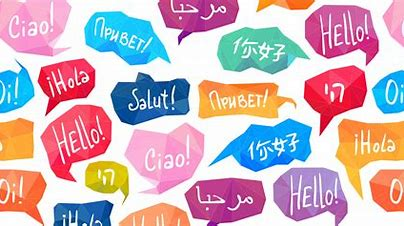
Learning a new language can be a rewarding and enjoyable experience, but it can also be challenging and frustrating at times. How can you make the most of your language learning journey and achieve your goals faster and easier? Here are some tips and tricks that can help you learn any language effectively and efficiently.
Choose a Language That Interests You
The first step to learning a language is to choose one that interests you. This may seem obvious, but it is important to pick a language that you are genuinely curious about and motivated to learn. If you choose a language that you have no connection or passion for, you will likely lose interest and give up soon.
There are many factors that can influence your choice of language, such as your personal or professional goals, your cultural or historical background, your travel plans, your hobbies, or your favorite media. Whatever your reason is, make sure that you have a clear and realistic purpose for learning the language, and that you enjoy the process of discovering its sounds, words, grammar, and culture.
Find the Right Resources and Methods

Once you have chosen the that interests you, you need to find the right resources and methods to learn it. There are many options available nowadays, such as books, apps, websites, podcasts, videos, courses, tutors, etc. You can use any combination of these resources and methods, depending on your preferences, needs, budget, and availability.
However, not all resources and methods are equally effective or suitable for everyone. You need to find the ones that match your learning style, level, goals, and interests. For example, some people prefer visual aids, while others prefer audio materials. Some people like structured lessons, while others like self-directed learning. Some people focus on grammar and vocabulary, while others focus on communication and culture.
The best way to find the right resources and methods for you is to experiment with different options and see what works best for you. You can also get feedback from other learners or experts who have experience with the language or the resource or method that you are using. You can also use online tools such as [Bing Translator] or [Duolingo] to help you with translation or practice.
Set SMART Goals and Track Your Progress
Another tip to learn effectively is to set SMART goals and track your progress. SMART stands for Specific, Measurable, Achievable, Relevant, and Time-bound. These are the criteria that can help you create realistic and meaningful goals for your language learning.
For example, instead of saying “I want to learn Spanish”, you can say “I want to be able to have a basic conversation in Spanish with a native speaker in 3 months”. This is a SMART goal because it is specific (what you want to do), measurable (how you will know if you have done it), achievable (within your abilities), relevant (to your purpose), and time-bound (when you want to do it).
Setting SMART goals can help you stay focused, motivated, and accountable for your language learning. It can also help you plan your learning activities and measure your results. To track your progress, you can use various tools such as tests, quizzes, journals, portfolios, etc. You can also use online platforms such as [italki] or [HelloTalk] to connect with other learners or native speakers and get feedback on your skills.
READ MORE
Best Apps For Students To Ease Their Learning
Immerse Yourself in the Language
One of the most effective ways to learn is to immerse yourself in it as much as possible. This means exposing yourself to the language in various contexts and situations, such as listening, reading, writing, speaking, watching, etc. The more you immerse yourself in the language, the more you will learn from it naturally and intuitively.
There are many ways to immerse yourself in the language without traveling or living in a country where it is spoken. You can use online resources such as Netflix, or [YouTube] to watch movies or shows in the language with subtitles. You can use apps such as [Spotify] or [Deezer] to listen to music or podcasts in the language. You can use websites such as [Wikipedia] or [Medium] to read articles or blogs in the language. You can also use social media such as [Facebook] or [Twitter] to follow pages or accounts in the language.
The key to immersing yourself in it is to make it fun and enjoyable for yourself. You can choose topics or genres that interest you or relate to your goals. You can also challenge yourself by trying different levels of difficulty or complexity. You can also mix and match different types of media or formats to keep yourself engaged and entertained.
Practice, Practice, Practice

The last but not the least tip to learn is to practice, practice, practice. No matter how many resources or methods you use, or how much you immerse yourself in the language, you will not learn it unless you practice it actively and regularly. Practice is the only way to improve your skills and confidence in the language.
There are many ways to practice, depending on your goals and preferences. You can practice the language by yourself, with a partner, or with a group. You can practice the language online or offline, formally or informally, casually or seriously. You can practice the by speaking, writing, listening, or reading. You can practice the language by using flashcards, games, exercises, dialogues, stories, etc.
The most important thing to remember when practicing the language is to have fun and be positive. You can make mistakes and learn from them. You can ask questions and seek answers. You can express yourself and communicate with others. You can enjoy the process and celebrate your achievements.
Conclusion
Learning can be a rewarding and enjoyable experience if you follow these tips and tricks. You can choose a language that interests you, find the right resources and methods for you, set SMART goals and track your progress, immerse yourself in the language, and practice it as much as possible. By doing so, you will be able to learn any language effectively and efficiently. Happy learning!


